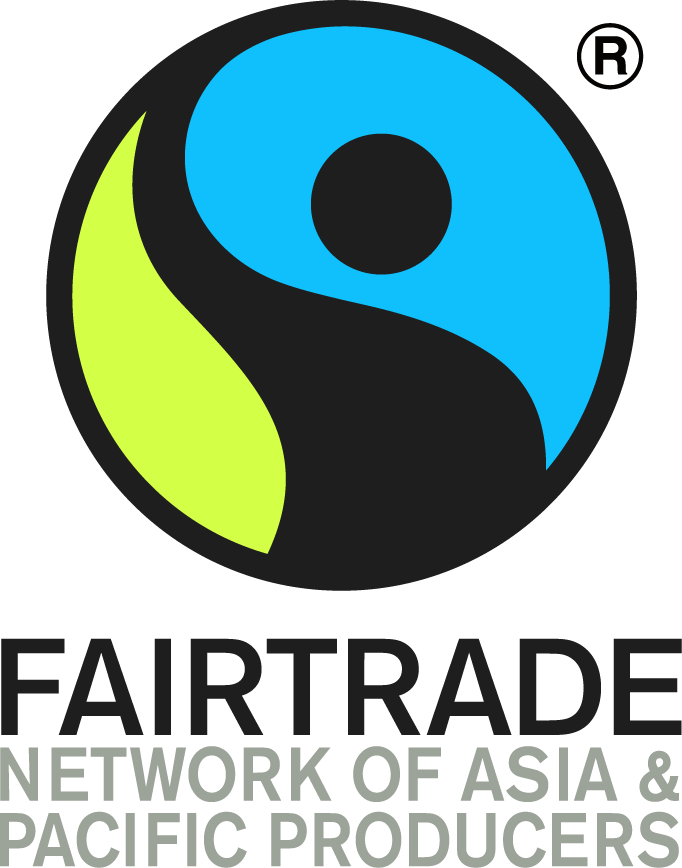Fairtrade NAPP strives for living incomes
A living income is a human right. But unfortunately, many farmers across the Asia Pacific do not earn enough to afford a decent standard of living. At Fairtrade we focus on changing this.


A living income is defined as sufficient income to afford a decent standard of living for all household members – including a nutritious diet, clean water, decent housing, education, health care and other essential needs, plus a little extra for emergencies and savings.
Just being Fairtrade certified doesn’t guarantee that farmers will earn a living income – it depends on multiple factors, and on everyone playing their part, from farmers, to cooperatives, to businesses, governments, and shoppers.
This is why our Living Income Strategy outlines what needs to be done beyond business as usual and identifies key responsibilities to make this happen. Fairtrade is committed to discover what really works to improve farmers’ incomes and to sharing what we learn along the way.
How Fairtrade NAPP addresses living incomes
-
Strong standards
-
Fairer pricing
-
Crop Diversification and Value addition
-
Producer support programmes
-
Market access
-
Collaboration
-
Research and data
-
Advocacy and policy change
-
Community Investment Programs
-
Collective Bargaining Support
-
Sustainability Initiatives


Living Income Benchmark Studies (Asia Pacific)
Fairtrade NAPP is actively engaged in the Living Income Benchmark study to ensure farmers earn enough to meet their basic needs.
A Living Income Reference Price indicates the price needed for a typical farmer household with a viable farm size and a sustainable productivity level to make a living income from the sales of their crop.
The model is derived from the universal human right for everyone who works to a just and favourable remuneration, ensuring an existence worthy of human dignity. Hence, full-time farmers should be able to make a living income from their farm revenues.
Living Income Reference Price is based on the following key parameters:
- Cost of a decent standard of living (living income benchmark)
- Sustainable yields (productivity benchmark)
- Viable farm size (to fully employ the available household labour)
- Cost of sustainable production (in order to achieve above mentioned yields)
Currently, Living Income Price has been established for Gayo coffee in Indonesia and coconut in Sri Lanka.
- LIRP for Gayo Coffee in Indonesia
In November 2021, Fairtrade International and Fairtrade NAPP, in collaboration with the Sustainable Coffee Platform of Indonesia (SCOPI), conducted a Fairtrade Living Income Reference Price for organic Gayo coffee from Aceh, Indonesia. The study involved the participation of 23 Coffee Small Producer Organizations (SPOs), representing 513 farmers.
The baseline data were collected by farmers in the Aceh Tengah and Bener Meriah districts of Aceh which are the largest Arabica-producing districts in Indonesia. A technical roundtable was set up in Indonesia in late 2021, composed of coffee experts representing producers, the government of Indonesia, industry, and research institutions. In collaboration with SCOPI, a series of virtual workshops were conducted to analyse the baseline results and complementary datasets, pool local knowledge and expertise and agree on the values for each of the variables in the price model.
Based on these variables, a Fairtrade Living Income Reference Price was established for organic Arabica coffee from Aceh, Indonesia.
- LIRP for Coconut in Sri Lanka
In collaboration with coconut milk importer Fairtrade Original and ETC Lanka, Fairtrade International supported by FT NAPP collected and analyzed farm economic data from 06 coconut producers in 2022, as a basis for calculating a Living Income Reference Price for coconuts from Sri Lanka.
A technical committee comprised of experts from the National Coconut Research Institute and the Coconut Cultivation Board in Sri Lanka was set up to provide guidance on defining a sustainable production model and identifying the required practices to implement this.
Baseline data for coconut production were collected from a sample of approximately 300 farmers from 10 producer organizations across the coconut triangle (Puttalam, Kurunegala and Gampaha districts) as well as Matara and Hambatota districts in the south, including 10% of non-Fairtrade farmers, and covering the main coconut-growing regions in Sri Lanka.
In November 2022, a stakeholder validation workshop was held with producer representatives and the technical committee to review the baseline results, ground these with local knowledge and expertise and agree on realistic target values for each of the variables in the price model.
Based on these variables, a Fairtrade Living Income Reference Price for coconut from Sri Lanka was established with support for programs on income generation and diversification program to meet the LIRP. As a part of the project 40 net houses were also co-funded by FT NAPP for 02 SPOs supporting 40 families.
ADDITIONAL STUDIES
Living Income Reference Price Reference study were also conducted for:
- Jasmine Rice in Thailand:
COOP in collaboration with Max Havelaar Switzerland and supported by Fairtrade NAPP conducted a Fairtrade Living Income Reference Price study for jasmine rice from Thailand. The study was participated by 06 SPOs ( 15 lead farmers). As an outcome the LIRP for jasmine rice has been established and recommendations have been made for a future study. The study is yet to be published
- Upcoming
- Living Income Reference Price Reference study for Rice in India with 16 rice producer organisations.
